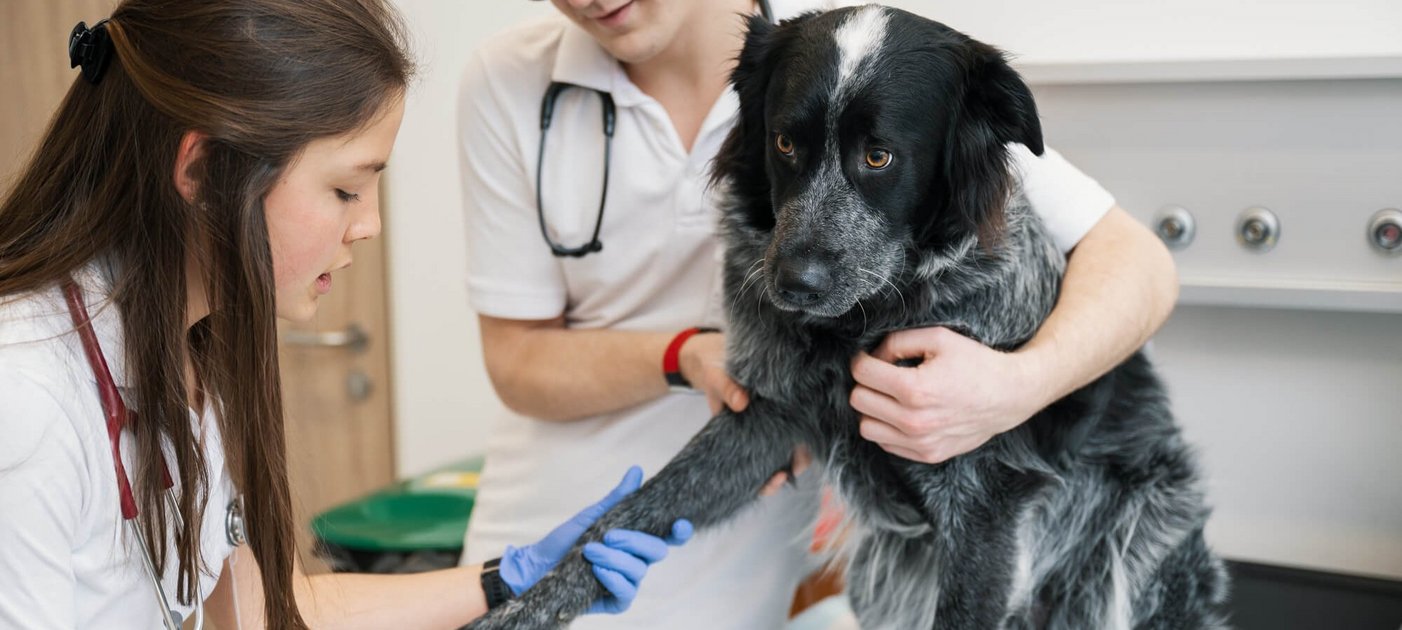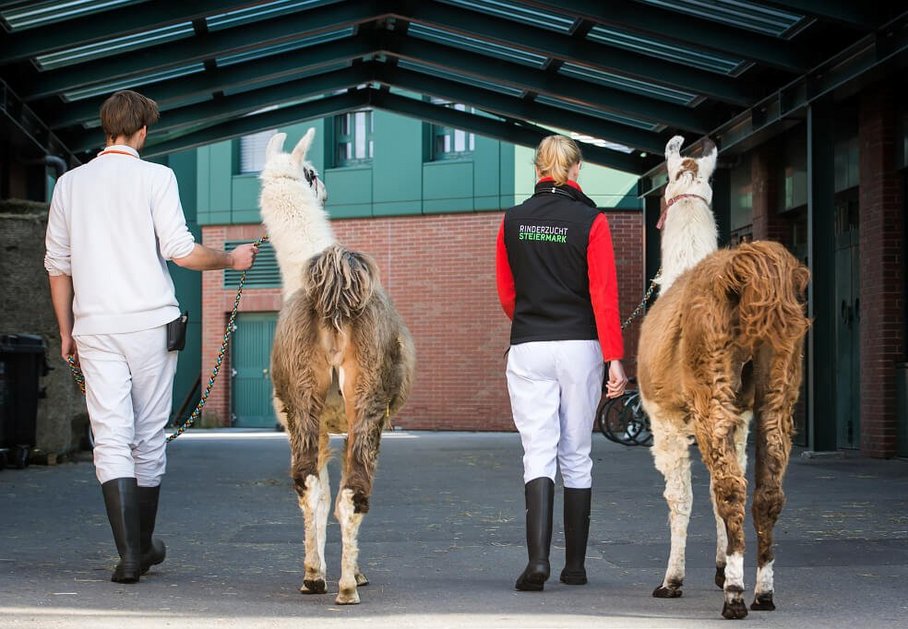- Home /
- Start /
- Studies /
- Degree Programmes /
- Extension programme Initial consultation and care of the small animal patient
Programme code
Language of instruction
ECTS points
semesters
places in the courses
Graduation
Why study extension programme - Initial consultation and care of the small animal patient?
This should enable graduates to
- independently collect and categorise anamnestic information and initiate necessary diagnostic examinations to clarify the case.
- independently carry out clinical examinations on patients and develop further solutions for diagnostics and therapy.
- communicate these results and solutions effectively to their supervisor in a clinical and emergency setting.
- discuss the results of the initial examinations and the solutions developed with the patient owners in an appropriate language.
- act professionally and as a team player in a multi- or interdisciplinary context.
- reflect on their own professional behaviour through feedback.
- describe and document clinical cases in the usual technical language and discuss and critically reflect on them with fellow students and experts.
- scientifically analyse clinical cases and present them to a specialist audience.
The programme
The extension programme - Initial consultation and care of the small animal patient - is primarily aimed at graduates and students of the Diploma in Veterinary Medicine who wish to expand and deepen their knowledge and practical skills in the first consultation and care of small animal patients.
On completion of this extension programme, students acquire in-depth knowledge and skills in primary and emergency treatment, primarily for small animals, but also for pets, ornamental birds and reptiles. Knowledge and skills learnt in the foundation course in initial consultation and care are expanded and applied practically to patients.
The aim is to deepen the practical skills specified by the European Association of Establishments for Veterinary Education (EAEVE) in the area of primary and emergency care. Communication skills, social skills and professional behaviour in initial consultation and care are also trained through direct patient-owner contact.
The extension programme - Initial consultation and care of the small animal patient - comprises 32 ECTS credits (ECTS-AP). This corresponds to a study period of two semesters.
The extension programme consists of a total of 3 modules:
1st module: Primary care in small animal medicine: basics
- Initial consultation and care of the small animal patient: Basic knowledge (2 ECTS)
- In-depth diagnostic imaging in the context of first aid and emergency medicine (3 ECTS)
- Practical skills in primary and emergency care using a model (1.5 ECTS)
- Primary and emergency care of the small animal patient: latest findings from the literature (4.5 ECTS)
2nd module: Problem-orientated case processing
- Effective case work: case discussion, case report and case presentation of relevant cases in practice I (1 ECTS)
- Effective case work: Case discussion, case report and case presentation of relevant cases in practice II (4 ECTS)
Module 3: Practical initial consultation and care in the outpatient department
- Outpatient services in the emergency department I (5 ECTS)
- Outpatient services in the emergency department II (11 ECTS)
Admission requirements for the extension programme in - Initial consultation and care of the small animal patient - are the completion of a degree in veterinary medicine or admission to the diploma programme in veterinary medicine, for which the following additional requirements must be met:
completion of
- the courses of the 9th semester,
- the partial examination Fundamentals of Food Science and Public Veterinary Health and Dispensing Law,
- the partial examination Clinical Examination - Farm Animals and the partial examination Clinical Examination - Companion Animals.
For persons whose first language is not German, knowledge of the German language at level B2 of the Common European Framework of Reference for Languages (CEFR) is required.



